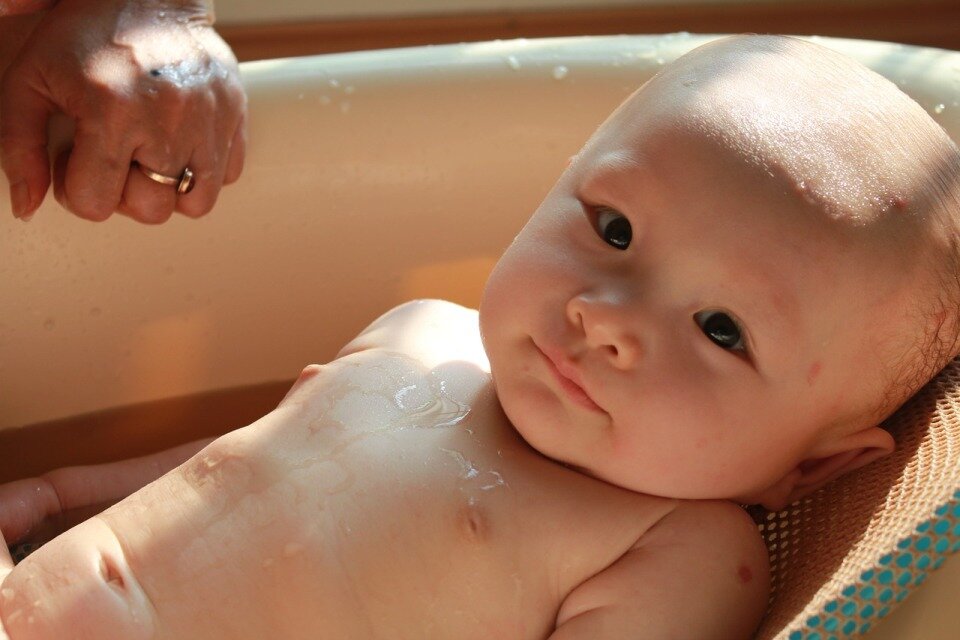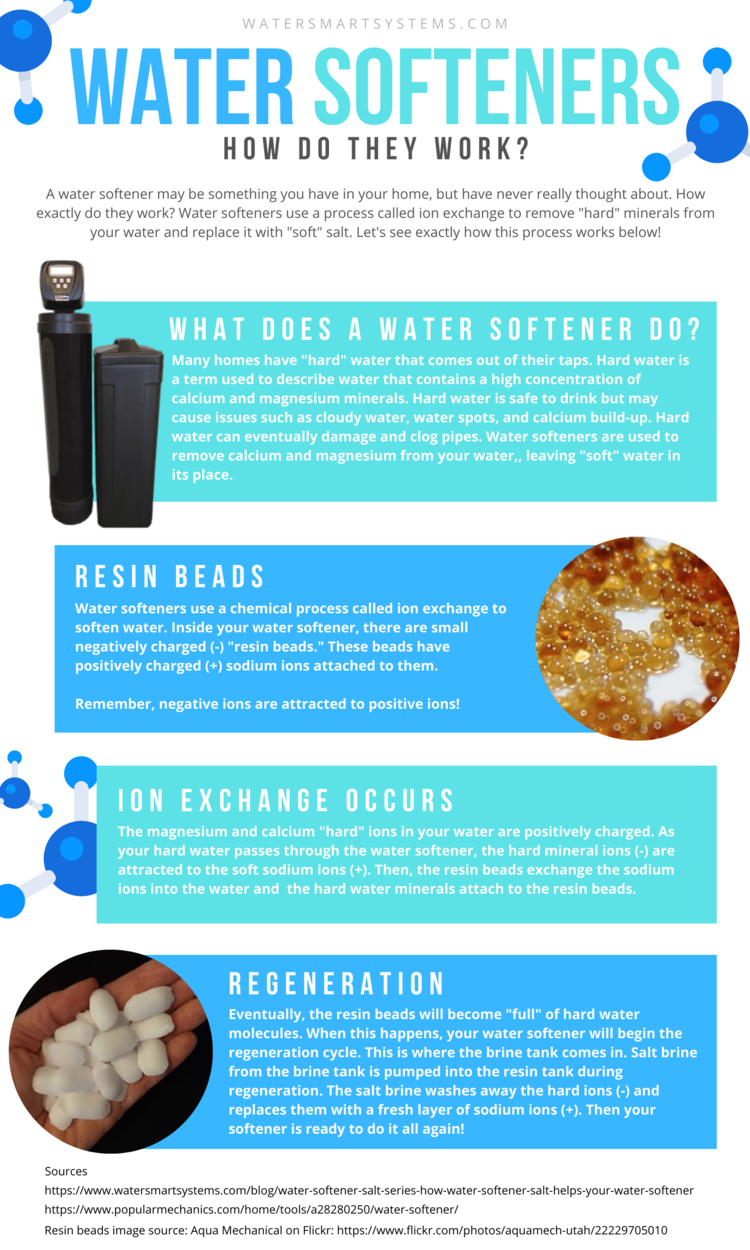Drinking water hardness: Even though drinking hard water is not dangerous to your health, hard water does cause other issues around your home. These include:
Dry Skin and Hair - Learn more
Development of Eczema in Infants - Learn more
Dingy Laundry - Learn more
Unsightly Film on Your Dishes - Learn more
Mineral Deposits & Eventual Wear & Tear of Your Appliances - Learn more
Damage to Your Plumbing - Learn more
Continue reading or click on this link to learn how a water softener can help.
If you would like to solve your drinking water hardness problem, we can help. Contact us today to get a water softener installed in your home.
Drinking water hardness can lead to other problems around the home
Drinking Water Hardness Problems
1.Dry Skin and Hair
Hard water doesn’t rinse well: If you have hard water in your home, your skin and hair may be quite dry and you may also notice that your scalp feels itchy.
This is because the minerals found in hard water will actually decrease the cleaning effectiveness of your soap and shampoo and prevent them from rinsing off as effectively as soft water does. If you have naturally dry skin or eczema, soft water may be a better choice for you.
Hard water doesn’t lather up well: You'll also find that if you have soft water you will use less soap and shampoo when bathing as soft water lathers up better than hard water does.
Hard water can alter PH balance: In addition, the minerals in hard water can alter the PH balance of your skin which can weaken its protective barrier and make you more susceptible to bacteria and infections.
Hard water can make your skin and hair feel dry
2. Development of Eczema in Infants
Hard water can lead to early eczema: A study done by King's College in London, found that high levels of water hardness in your home may be linked to the development of eczema early in life.
The study found that babies living in a hard water area were up to 87% more likely to have eczema at 3 months of age.
Hard water can break down the skin’s natural barrier: This is because hard water and chlorine found in water may cause a breakdown of the skin's natural barrier thus leading to eczema in infants. This breakdown allows allergens to penetrate your baby's skin and make it more prone to an allergic response.
Switching to soft water in your home could help prevent your baby from developing eczema.
Hard water could cause your baby to get eczema
3. Dingy Laundry
Hard water makes fibres brittle: High levels of water hardness can also leave you with dingy laundry and worn-out clothing. Hard water can make the fibres in your clothing more brittle so they tend to wear out faster.
Hard water can leave stains: In addition, when you wash your clothes in hard water, they may get mineral stains on them making them appear dingy and unclean.
Soft water, however, is gentler on your clothing and it also requires less detergent to get your clothes clean which is easier on your wallet.
Soft water will make your clothes look brighter and last longer
4. Unsightly Film on Your Dishes
Calcium carbonate can coat your dishes: Hard water contains calcium carbonate which can leave an unsightly white film or spots on your dishes and flatware.
If you have hard water, then you will probably notice these nasty spots on your glasses and silverware when you take them out of the dishwasher.
Soft water, on the other hand, doesn't contain or has very little calcium carbonate, so your dishes come out of the dishwasher sparkling clean.
Drinking water hardness can leave a nasty film on your dishes
5. Mineral Deposits & Eventual Wear & Tear of Your Appliances
Hard water leaves a build-up: If you have high drinking water hardness, then over time you will notice a mineral build-up on your appliances, especially those that use hot water such as your:
Hot water heater
Dishwasher
Electric Kettle
Coffee Maker
Build-ups can damage your appliances: This is because the minerals in your hard water tend to build up faster when your water is heated. This build-up of minerals can eventually clog up and do damage to your appliances. As a result, they will need to be replaced sooner than if you had soft water.
Using a water softener to soften your water will help to protect your appliances and prolong their life.
Drinking water hardness leaves a mineral build-up on hot water appliances
6. Damage to Your Plumbing
Hard water leads to lower water pressure: Hard water can also cause damage to your plumbing. Over time, the minerals in your hard water will leave a build-up inside your pipes, especially your hot water pipes.
This can leave you with an increase in your water pressure and can eventually do damage to your pipes.
Hard water can damage fixtures: In addition, the mineral build-ups can clog your shower head and taps and leave an unsightly film on your kitchen and bathroom fixtures that is difficult to clean.
How a Water Softener Can Help
If your water is hard, that means that it contains large amounts of dissolved minerals such as calcium and magnesium.
Water hardness is measured in milligrams per litre, which can also be called parts per million or ppm. Another common way to refer to water hardness is in grains per U.S. gallon (gpg).
The following chart will give you the different water classifications from soft to very hard.
The Kitchener-Waterloo region has some of the hardest water in all of Canada. The city of Kitchener ranges between 17 and 36 grains per gallon (gpg) or 291 and 615 mg/litre.
The water hardness average across Canada is only 10.5 gpg or 180 mg/litre . That means that Kitchener's water is about 2 to 3 times harder than the Canadian average!
Source: www.cwqa.com/
Installing a water softener can help you solve your drinking water hardness problem. Here is a simplified explanation of how a water softener works:
1.Hard water (containing positive calcium and magnesium ions) enters into the resin tank of your water softener.
2. The negatively charged resin beads attract the positively charged calcium and magnesium ions like a magnet.
3. The positive ions attach to the resin beads as the negative sodium ions on the beads are released into the water making it soft.
4. After a while, the resin beads will fill up with hardness ions and won't be able to attract anymore. Your water softener will pump salt brine into the tank to regenerate the beads.
How Much Do Water Softeners Cost?
Water softeners come in a wide price range anywhere about $500 for a small capacity one that you install yourself to $3,000 or more. Like with most purchases you get what you pay for. The cheapest model isn't always the best investment.
Make sure that you get a softener that will be able to handle the capacity of water that your household uses, that is designed to handle the hardness level of your water, and that will last.
How WaterSmart Can Help
WANT YOUR FAMILY TO ENJOY THE BENEFITS OF SOFT WATER? CONTACT WATERSMART
A water softener can help you solve your hard water problem. The professionals at WaterSmart can help you choose the most effective water softener for the level of hardness in your particular area.
We have been servicing the KW region for more than 25 years, so we understand the special requirements and settings necessary to ensure that your new water softener will function with maximum efficiency.
IF YOU ARE WONDERING WHETHER OR NOT YOUR SOFTENER IS WORKING WELL, THEN YOU CAN BRING US A SAMPLE OF WATER AND WE’LL TEST IT FOR FREE!
Our customers have come to recognize us as a company that provides superior customer service combined with the highest quality products at the best prices. Contact the water softener specialists at WaterSmart today.
““What a great experience!! I did a search on the internet, called regarding the price of a water softener and the next day it was installed and we had soft water again. Paul removed the old softener, installed and setup the new one and was out in just over an hour. He also noted that the grounding of water pipe was not done by previous installer and he corrected that as well. Cost was the same as softener that was installed 14 years ago - I am impressed.” ”













